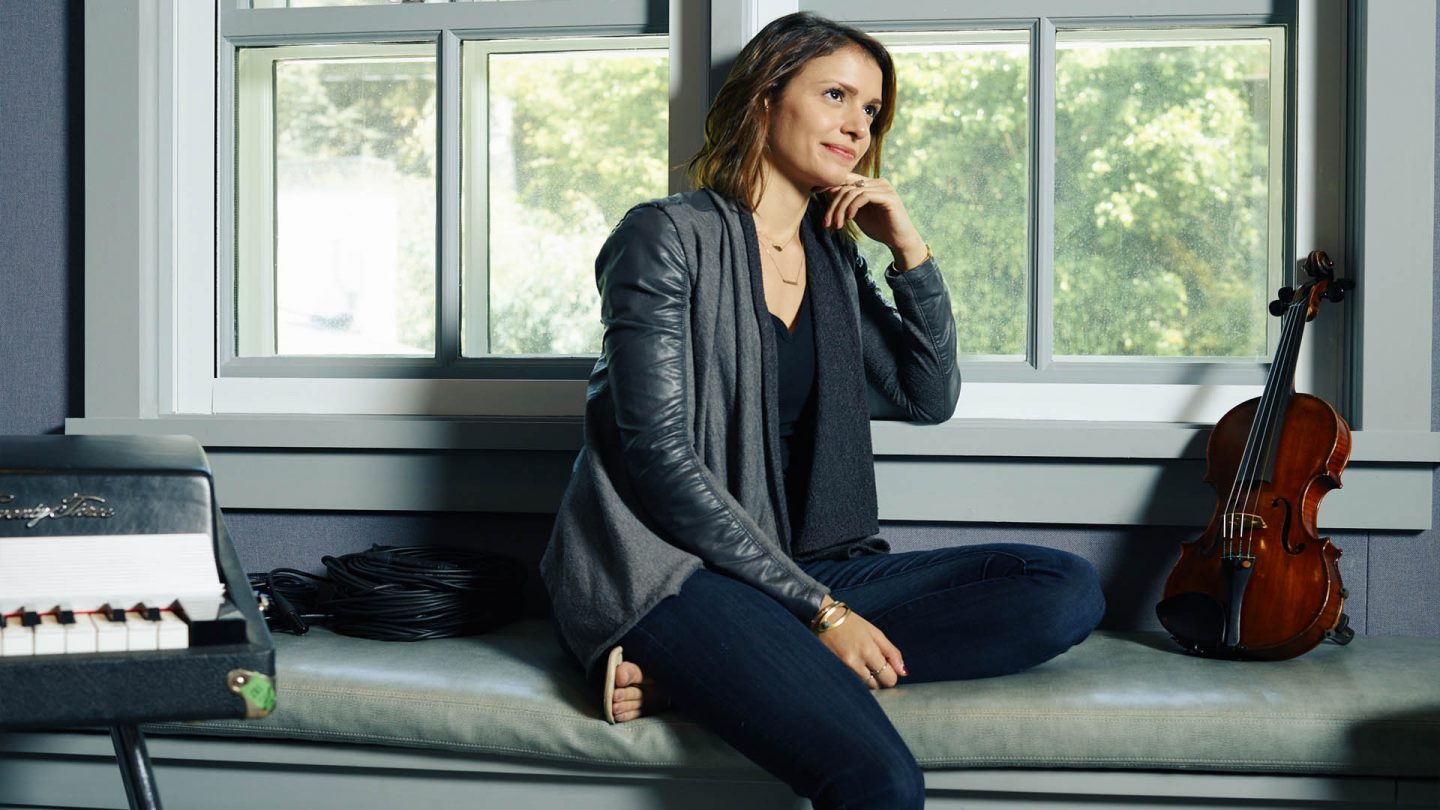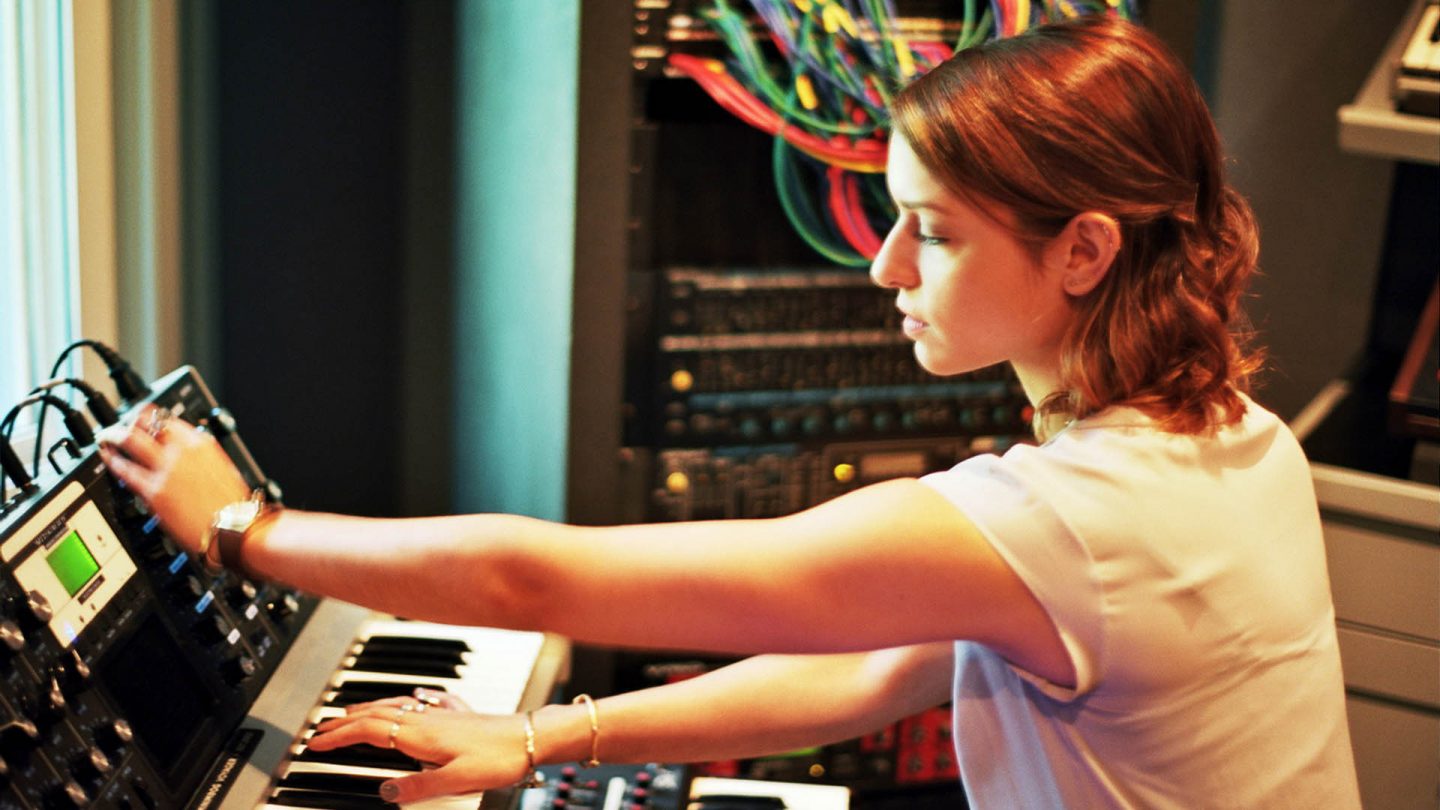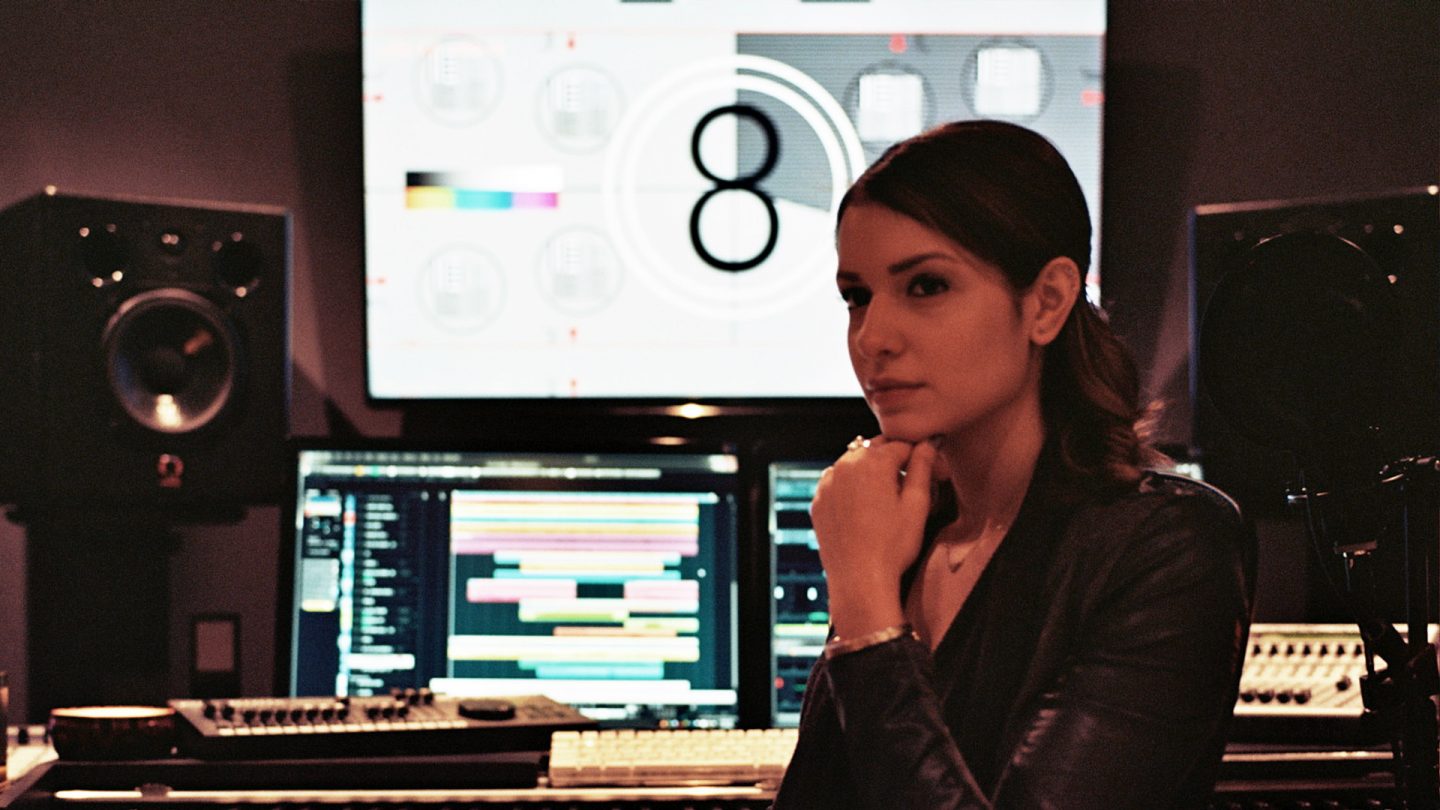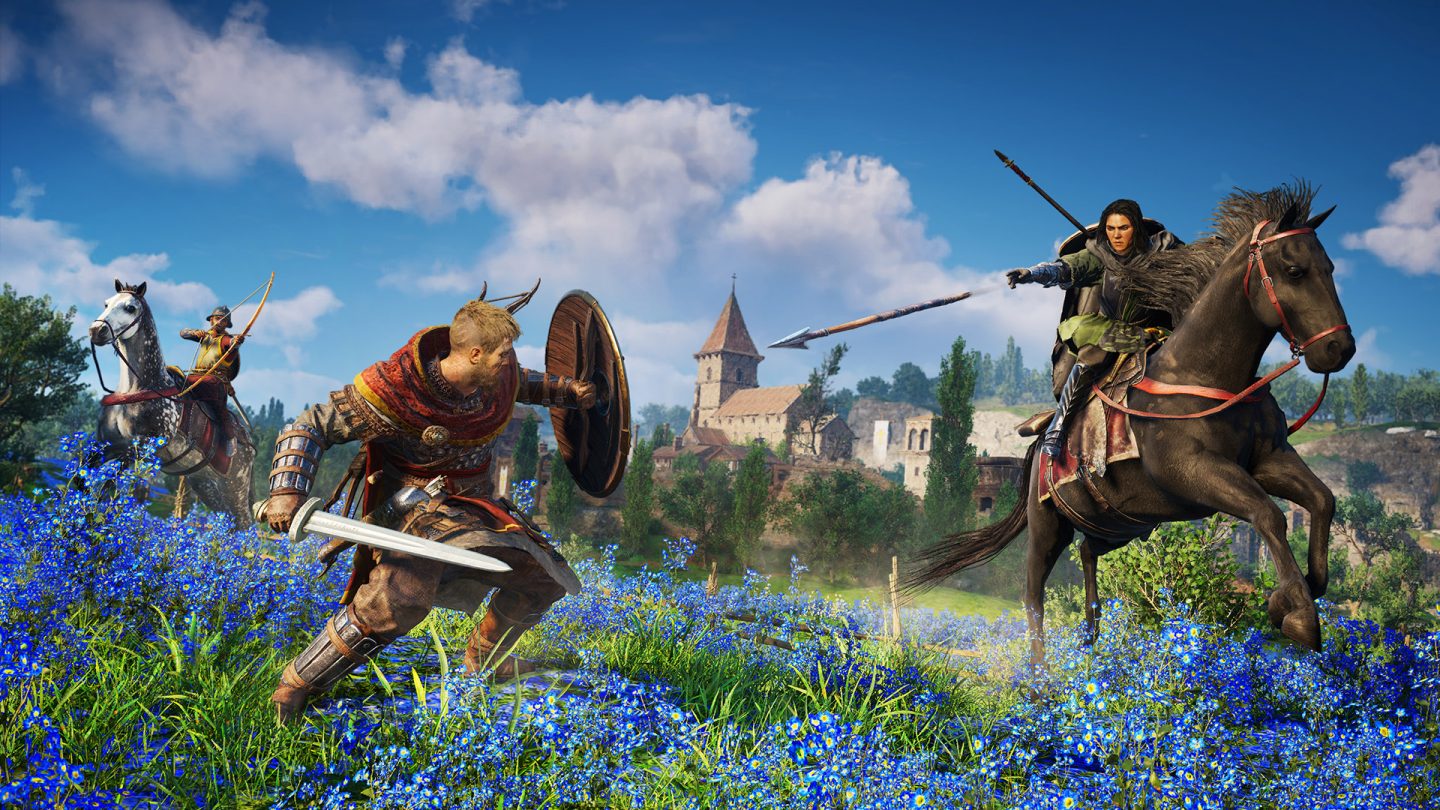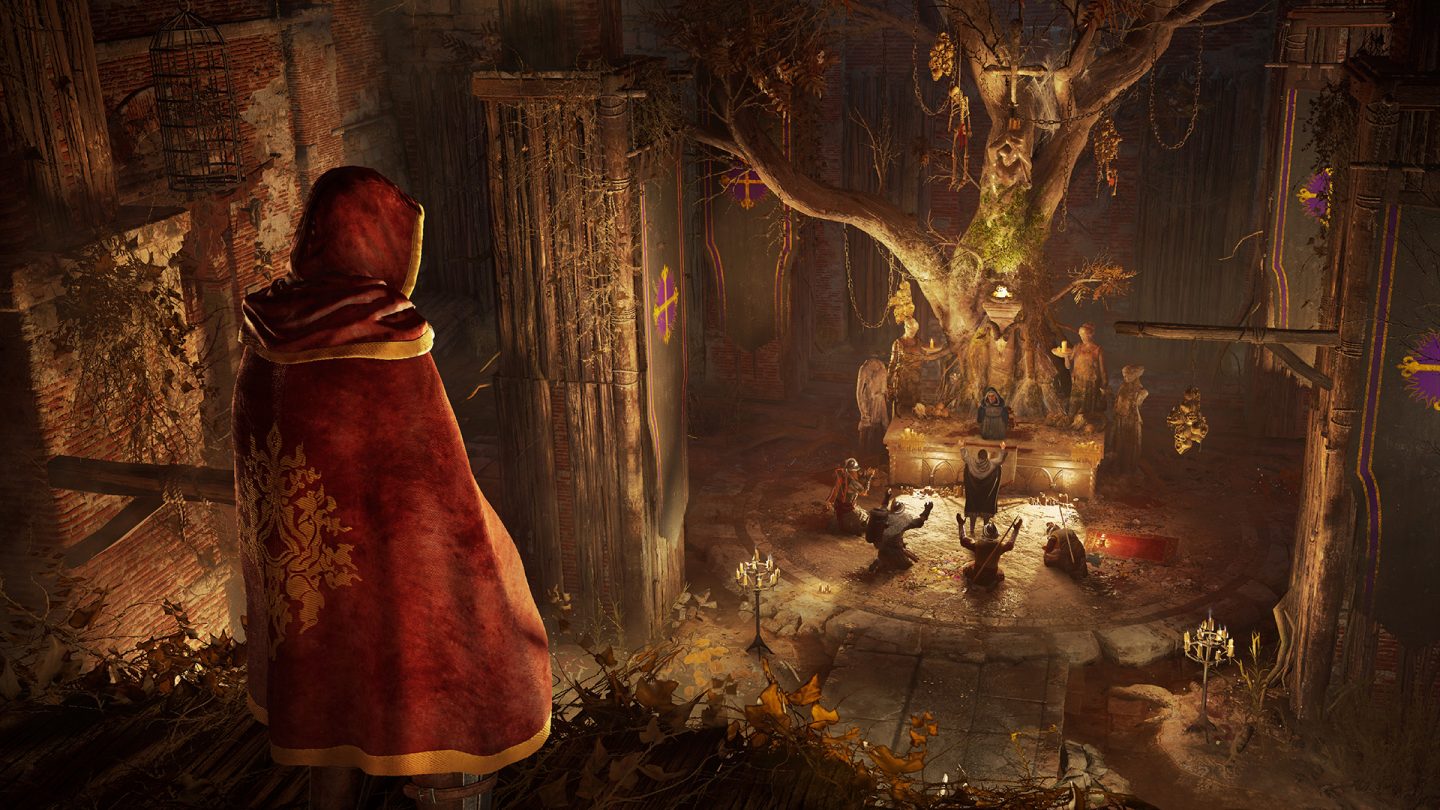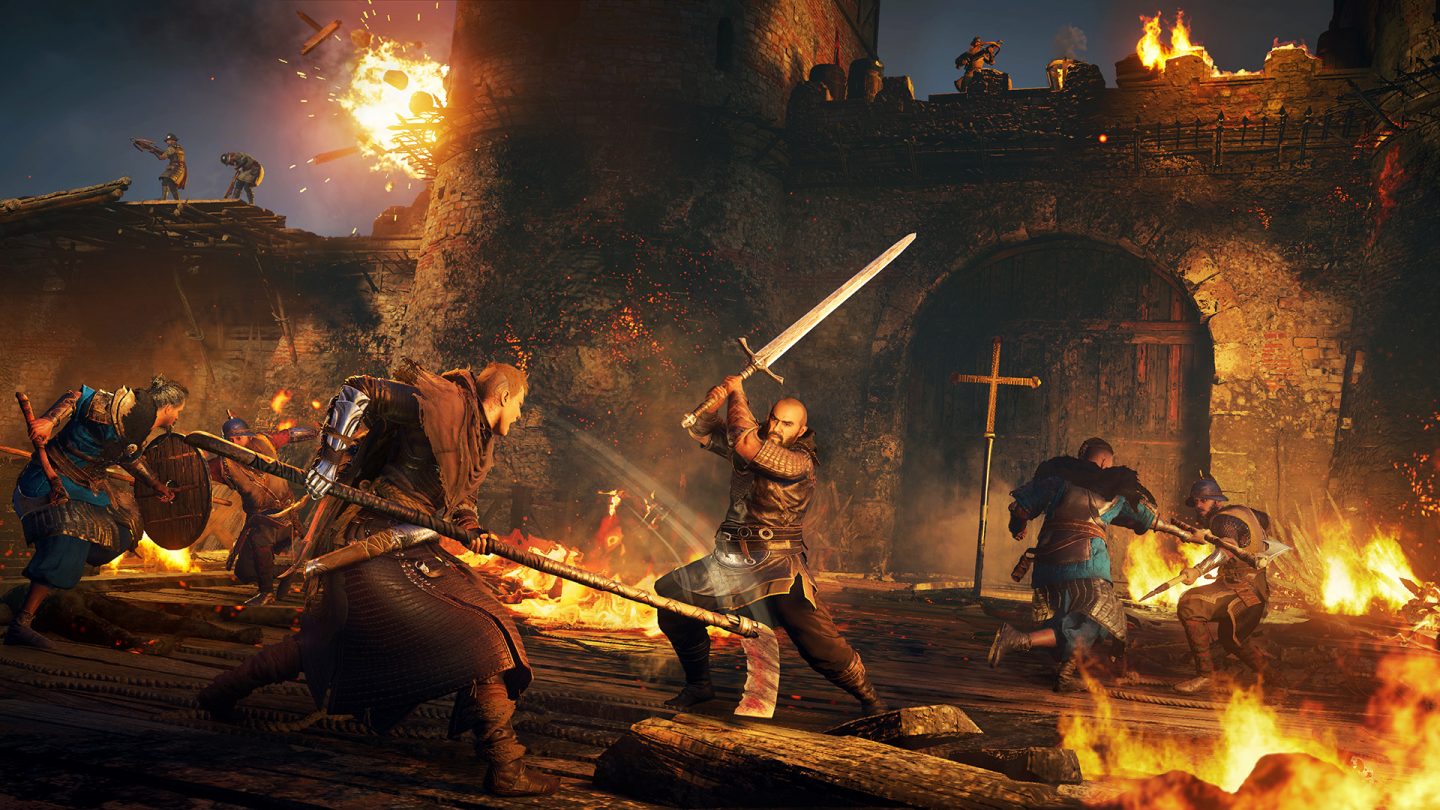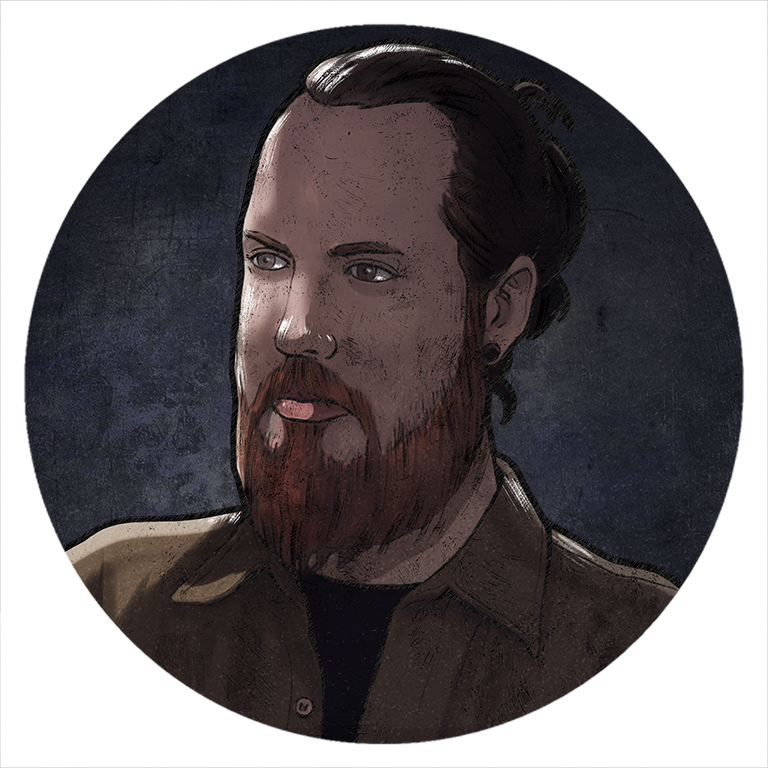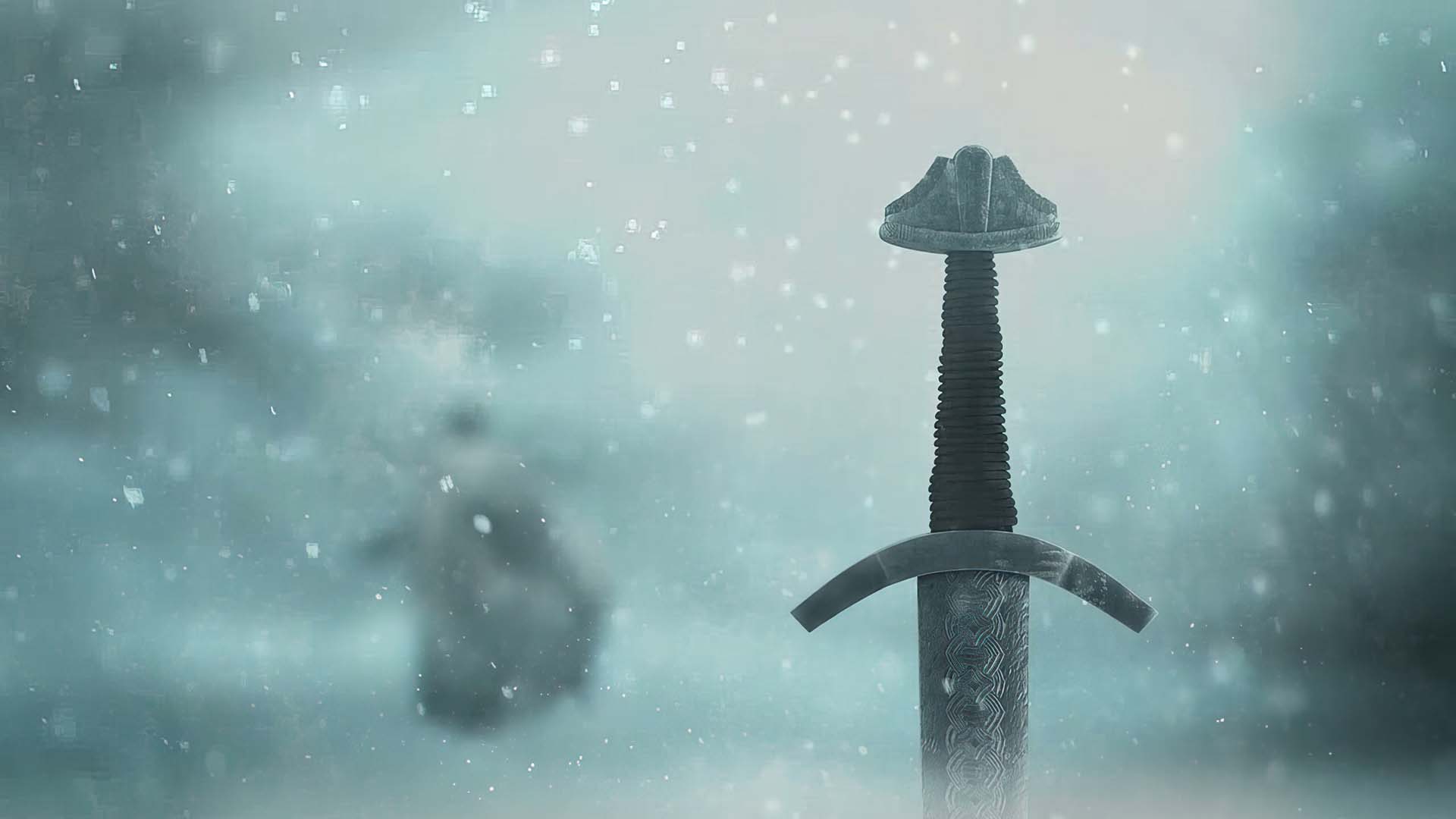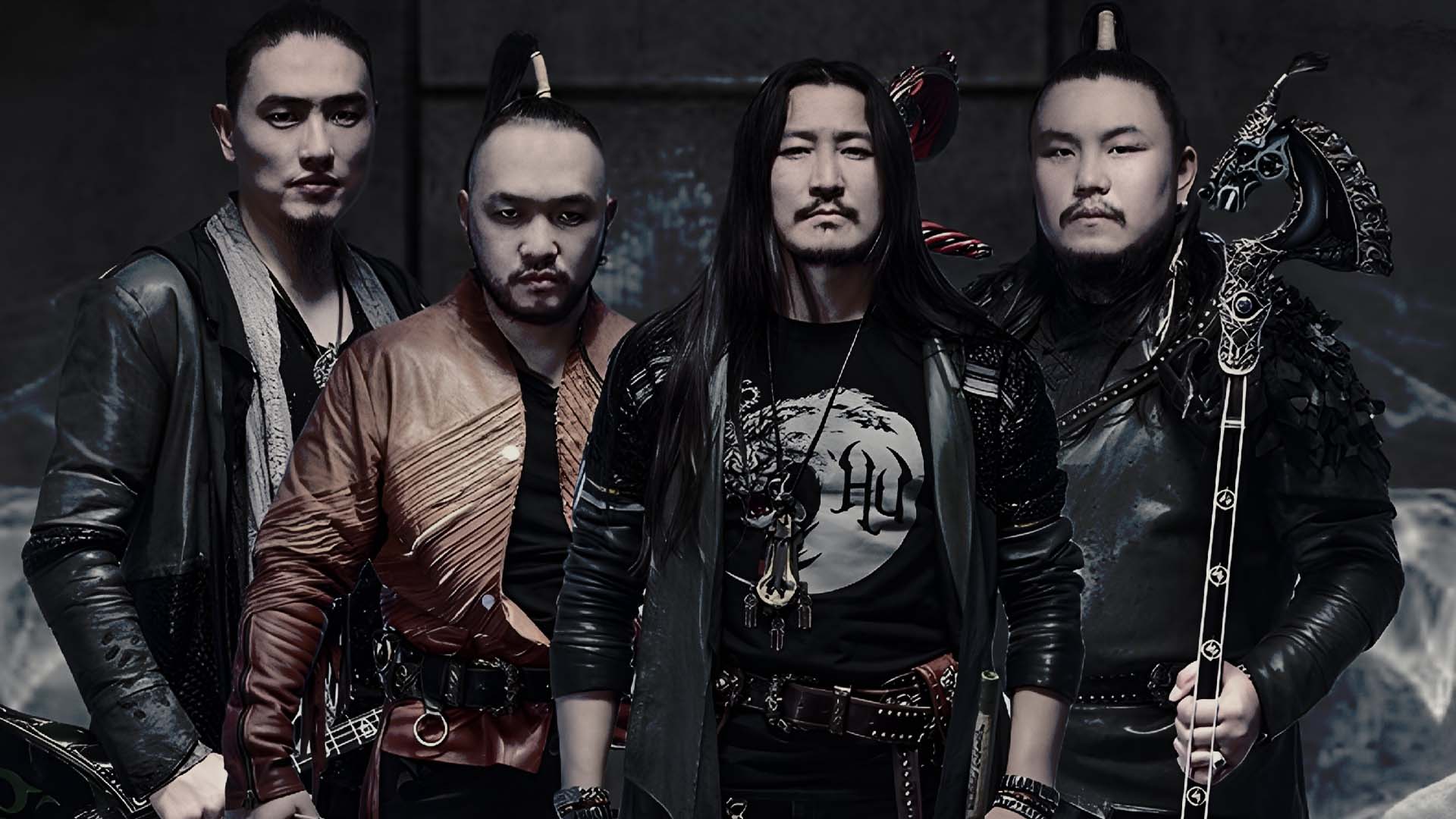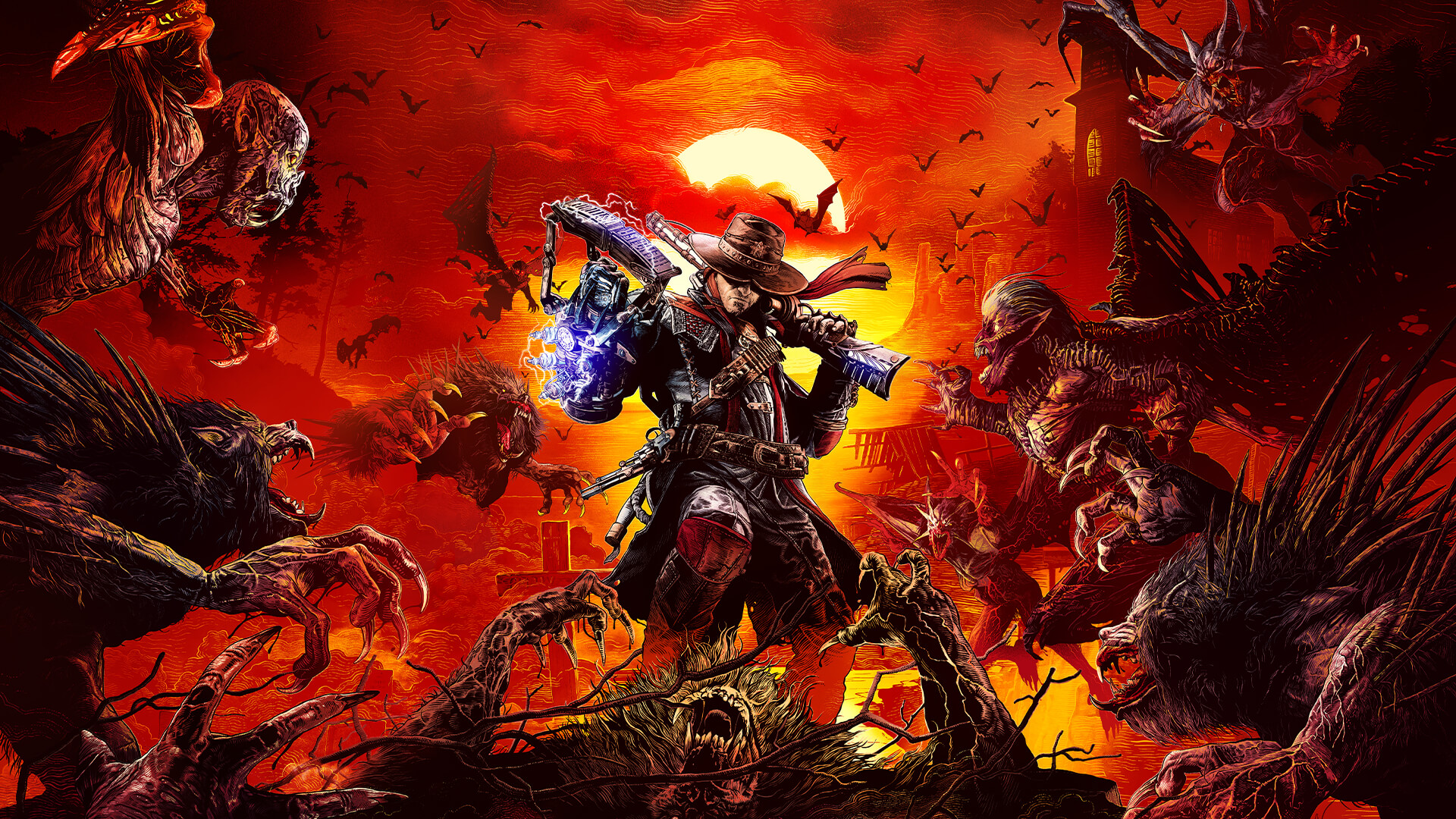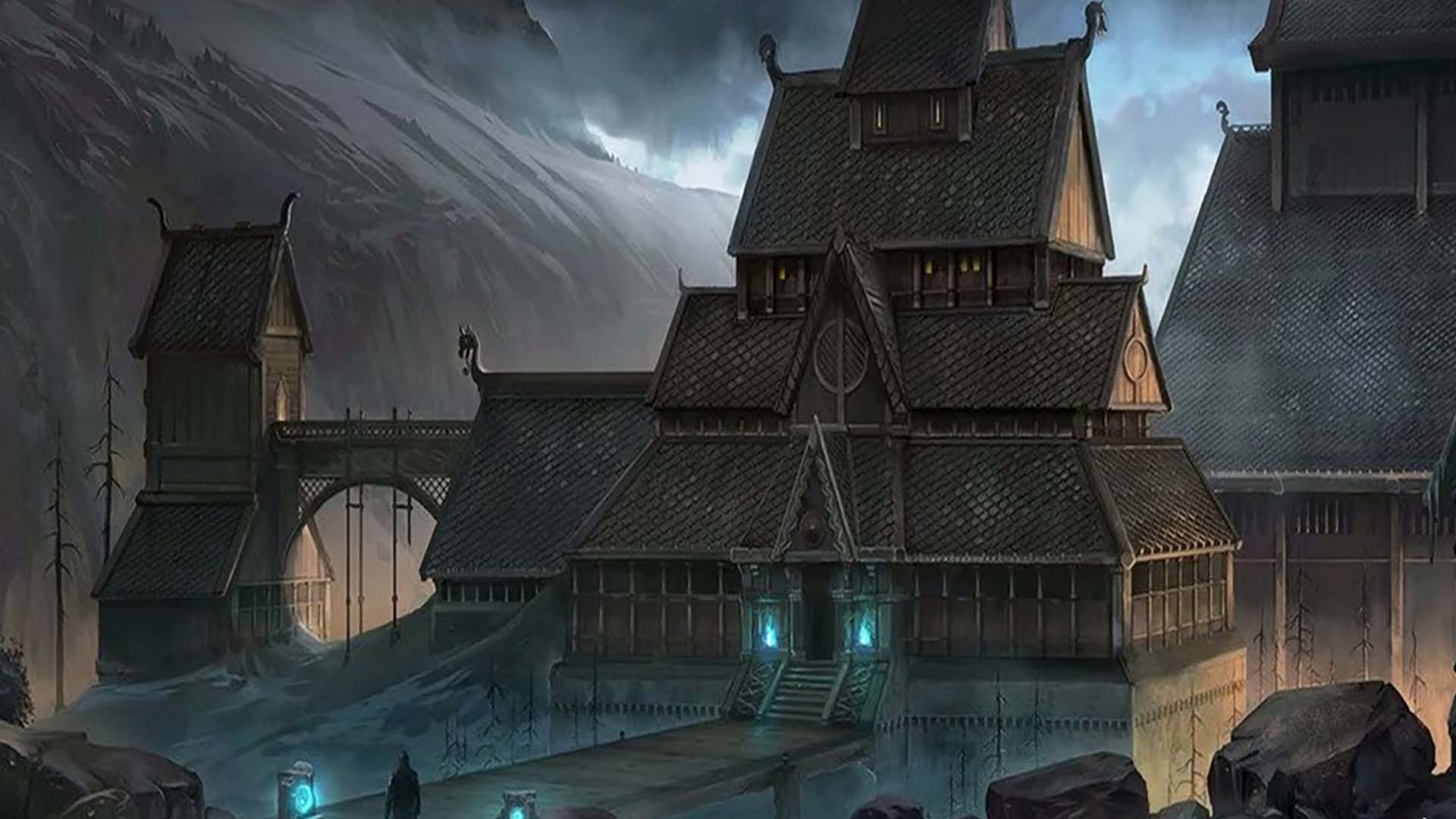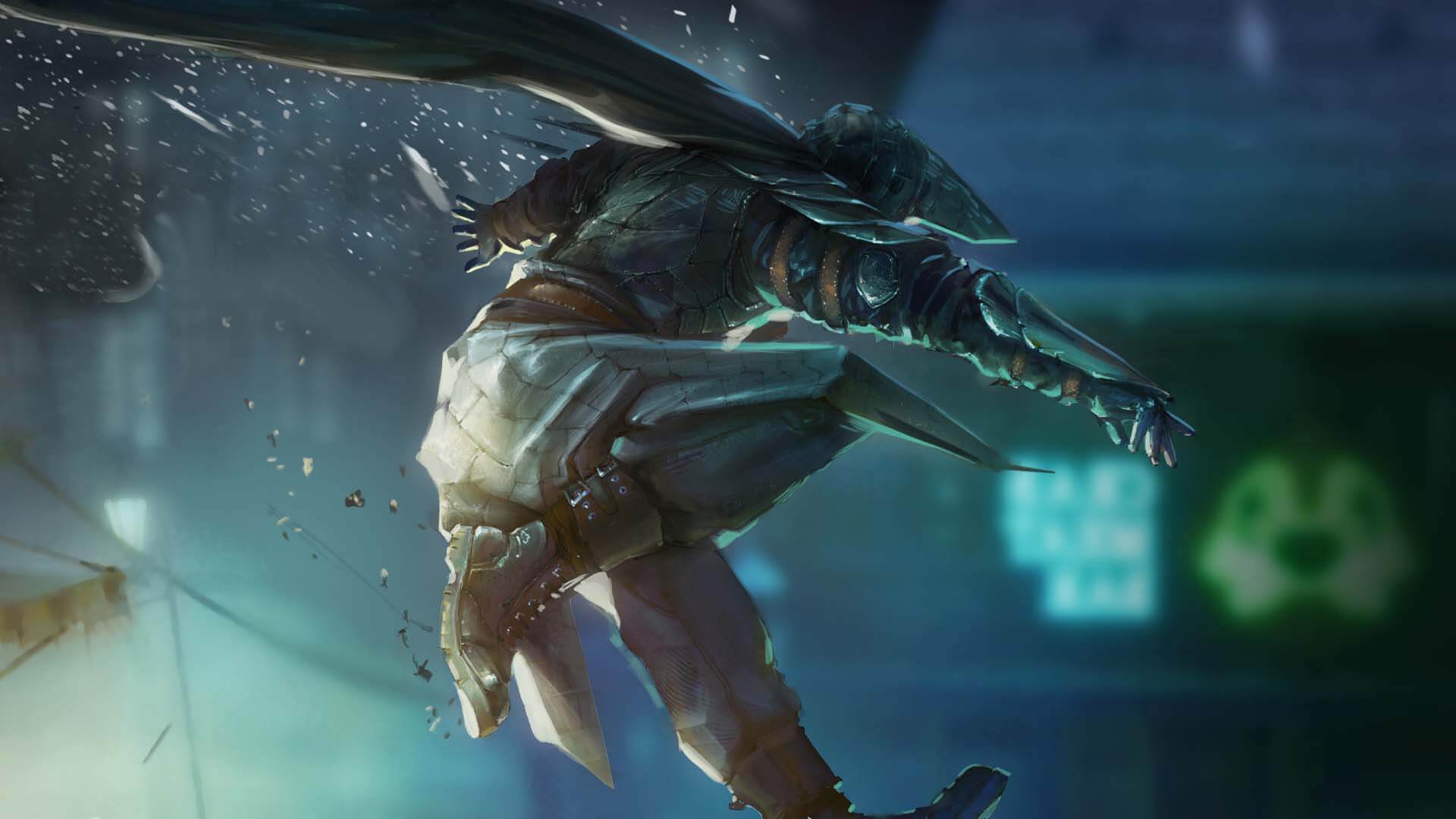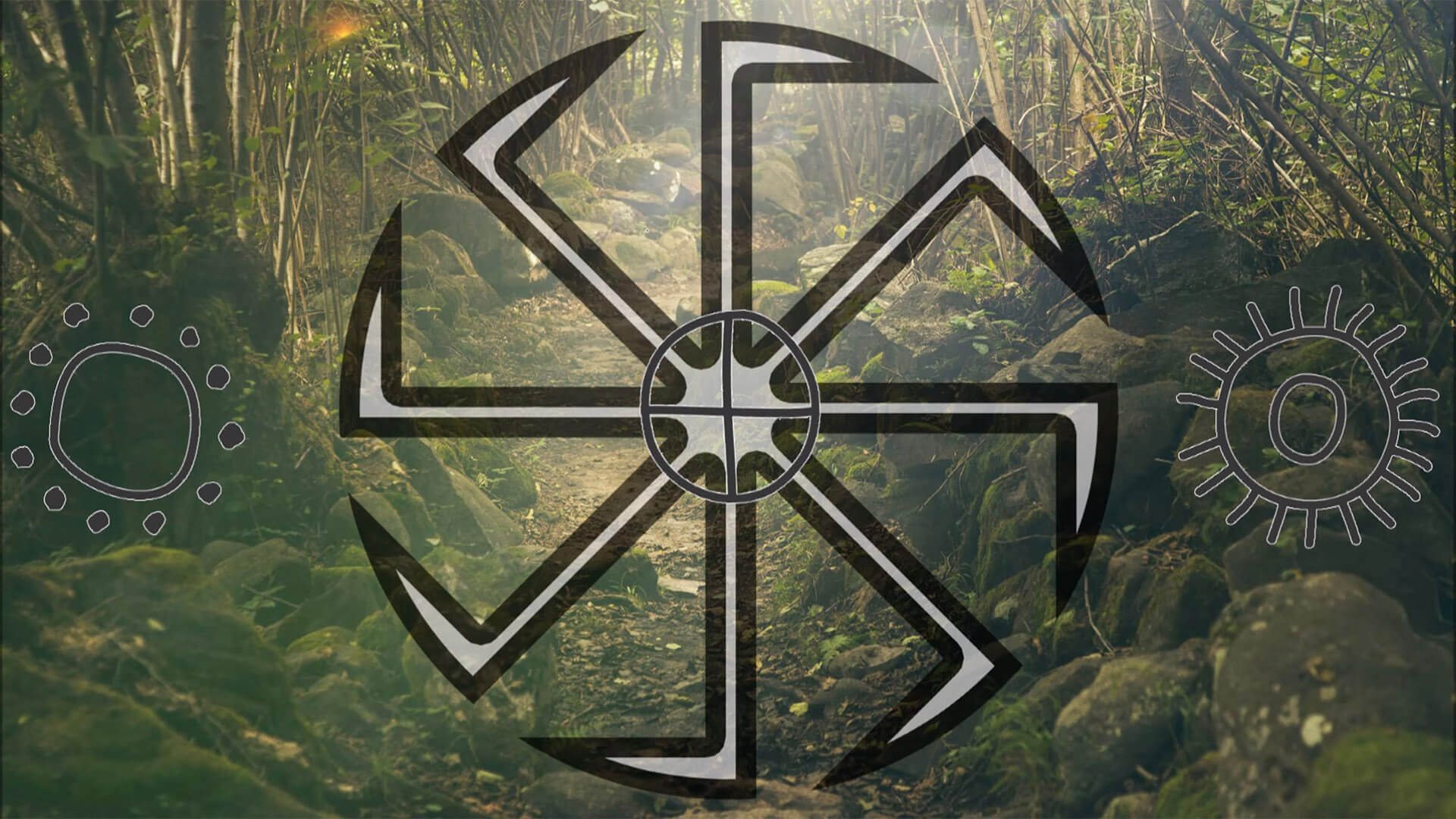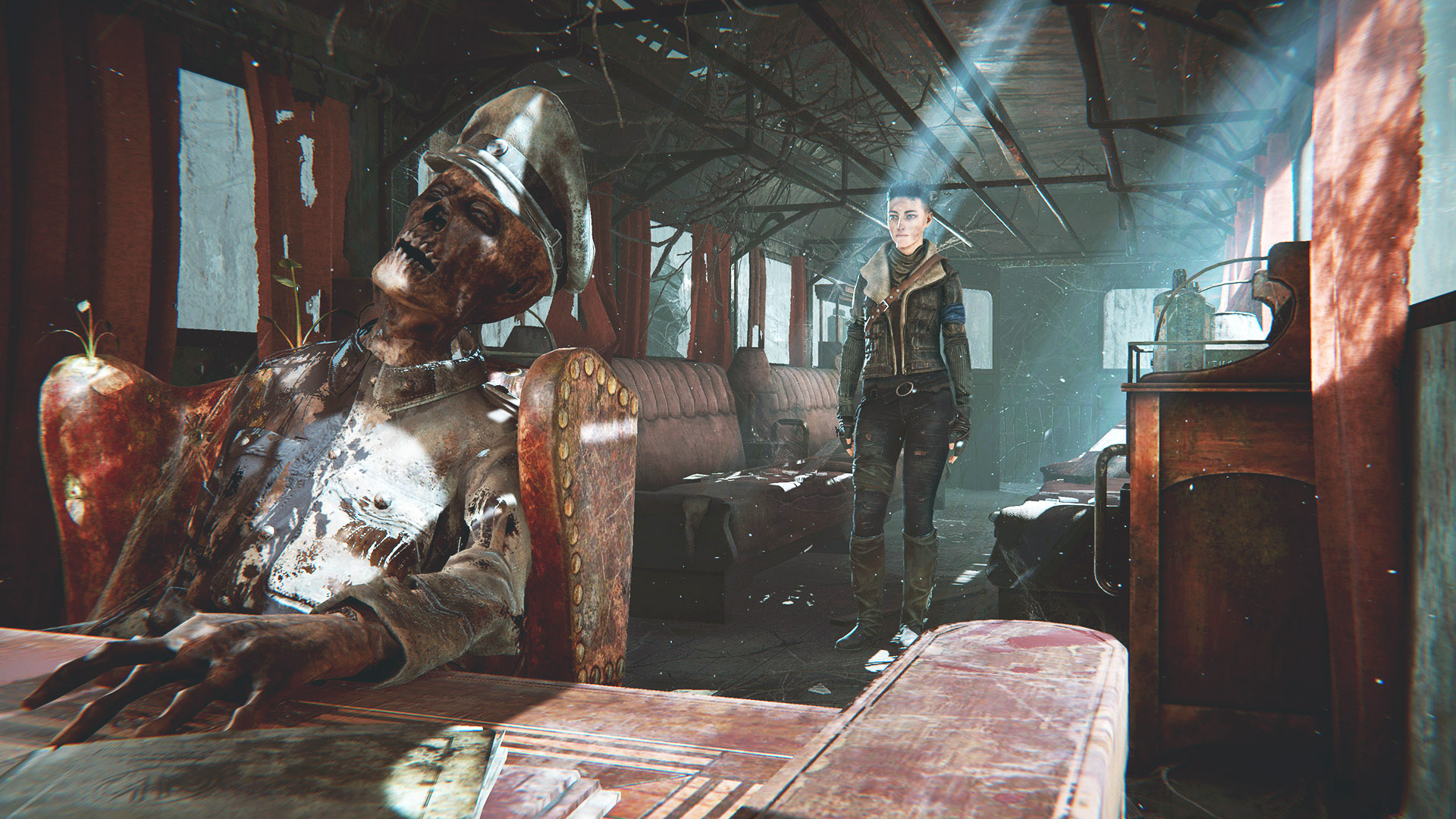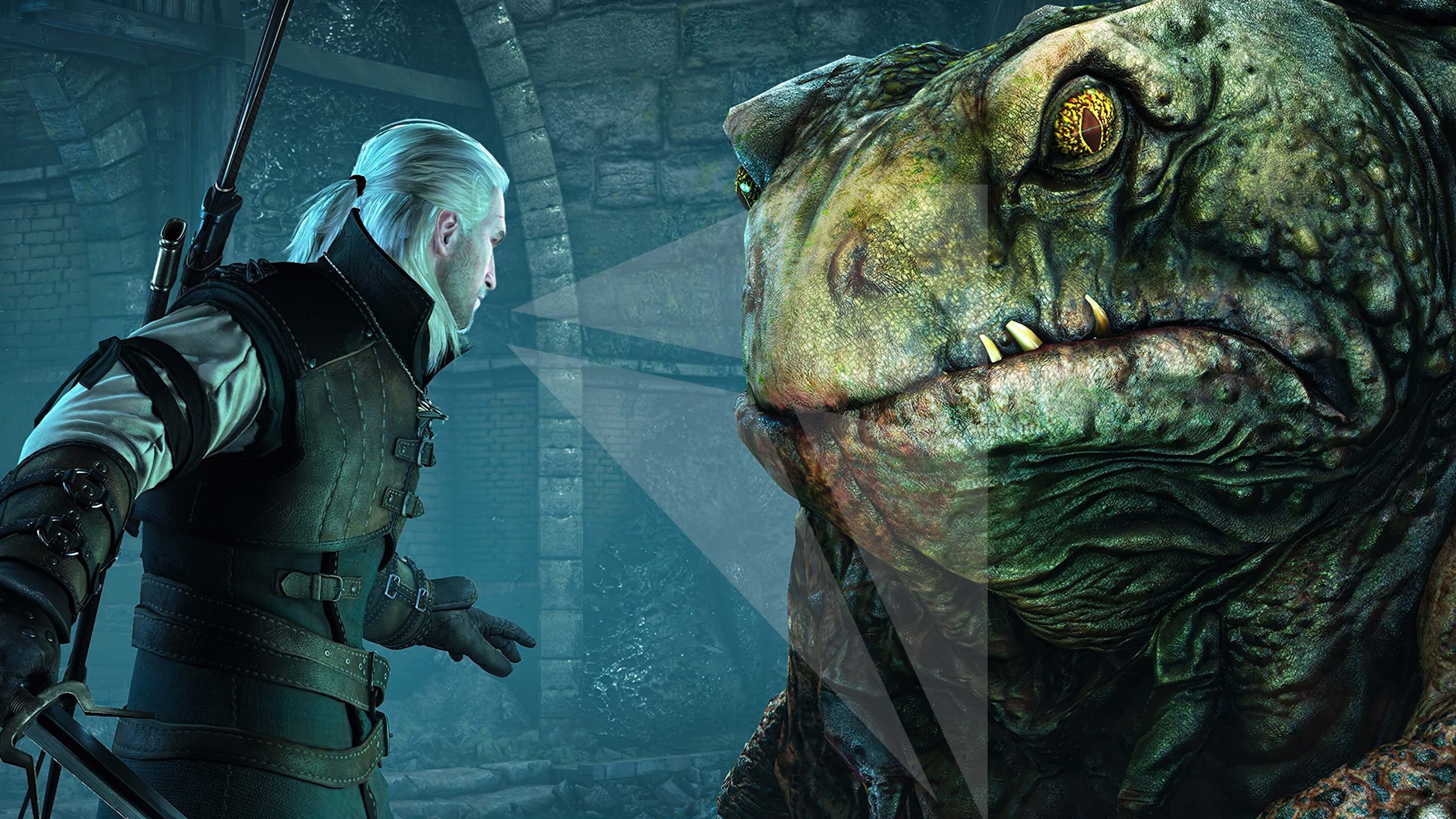December 3, 2021 — Behind every good video game is typically a soundtrack that helps fuel the epic conflict unfolding on screen. Kurgan-resident James Paterson recently caught up with Stephanie Economou, the composer behind the 14-piece soundtrack for Assassin’s Creed Valhalla: The Siege of Paris that was released in August.
Economou had plenty to offer during our deep discussion on her work on The Siege of Paris, composing for historical set pieces, and how to create music for history-fiction works. Economou’s talents have been heard on the big screen and the small, with credits including compositions attached to The Meg, The Equalizer 2, The Zookeeper’s Wife, and The Martian. The former Long Islander may be no stranger to TV and movies, but The Siege of Paris was her first video game credit.
You have been in the news a lot recently, landing spots writing music for Netflix’s adaptation of Mark Millar’s Jupiter’s Legacy, Disney’s live-action Mulan, and more, and that meant a lot of interviews! Tell me a little about yourself we haven’t already heard, and for those who haven’t heard of you, how would you introduce yourself?
Here’s a distilled introduction for ya! I’m Steph, and I compose music for stories and media. I’m a proud mother to two rambunctious brown dogs, and my primary joys in life consist of over-indulging in Italian cuisine, drinking whiskey, and making fun of my mother’s thick New York accent.
Did I answer the question correctly?
I’d say that was a great intro! Now, the soundtrack to Assassin’s Creed Valhalla: The Siege of Paris is now available through Lakeshore Records and in-game as the backdrop to the newest DLC. How would you characterize the sound of your recent work of The Siege of Paris and the “Hásæti” single?
For The Siege of Paris score, I wanted to hone in on what it might have felt like to storm the gates of Paris. There would have been a chaotic danger and energy, but also a sense of purpose, honor, and glory. I tried to create a musical space that was raw, primitive, and violent, but with moments of space and reflection. I incorporated ancient instruments into the musical palette, like viola da gamba, vielle, hurdy-gurdy, lyre, kantele, dulcimer, frame drums, and didgeridoo, which were amazing, rich sounds to work with. I also used more modern instrumentation such as viola, cello, and bass, but played in a more crude way, either scratched aggressively or hit with wooden sticks.
“I tried to entrench myself mentally into the sound of Valhalla and then I allowed my creative instincts to shape the music for this story in particular. I never tried to sound like Sarah [Schachner] or Jesper [Kyd] or Einar [Selvik], but I did allow their influence to open up more experimental possibilities in my approach.”
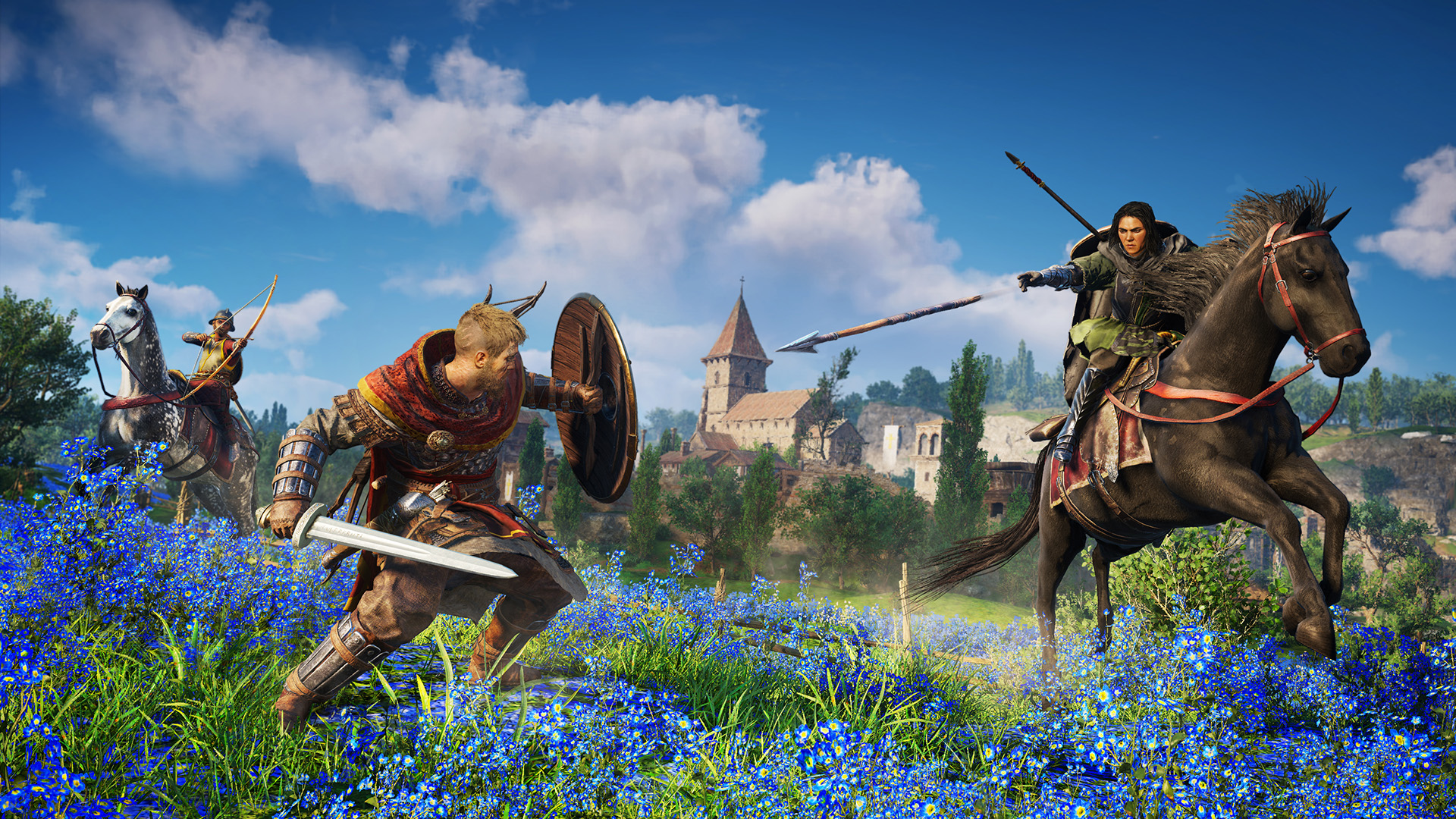
Vocals also became a large part of the tapestry of the score, with layers of siren calls and chanting in Old Norse, Latin, and French (sang by vocalist Ari Mason, who also played viola da gamba on the score). You can hear this particularly in the song ‘Hásæti’ which was a special, emotional track to compose.
Your latest work adds a cinematic feel to the traditional instrumentation of neofolk music and the work of contemporary artists like Einar Selvik. Did you have much interaction with the previous composers for the Assassin’s Creed Valhalla soundtrack (Jesper Kyd & Einar Selvik) while you were working on your music?
I didn’t have any interaction with them, though I familiarized myself with Sarah Schachner, Jesper, and Einar’s work leading up to starting on The Siege of Paris. I have the utmost respect and admiration for their music and I felt insanely grateful to have been given this chance to make a contribution to the rich world that they designed for AC: Valhalla. Even as I was writing, I kept listening to the AC: Valhalla soundtrack, trying to make my musical sensibilities feel like an extension of their universe. It was a really welcome challenge and it gave me the chance to exist in a new creative space.
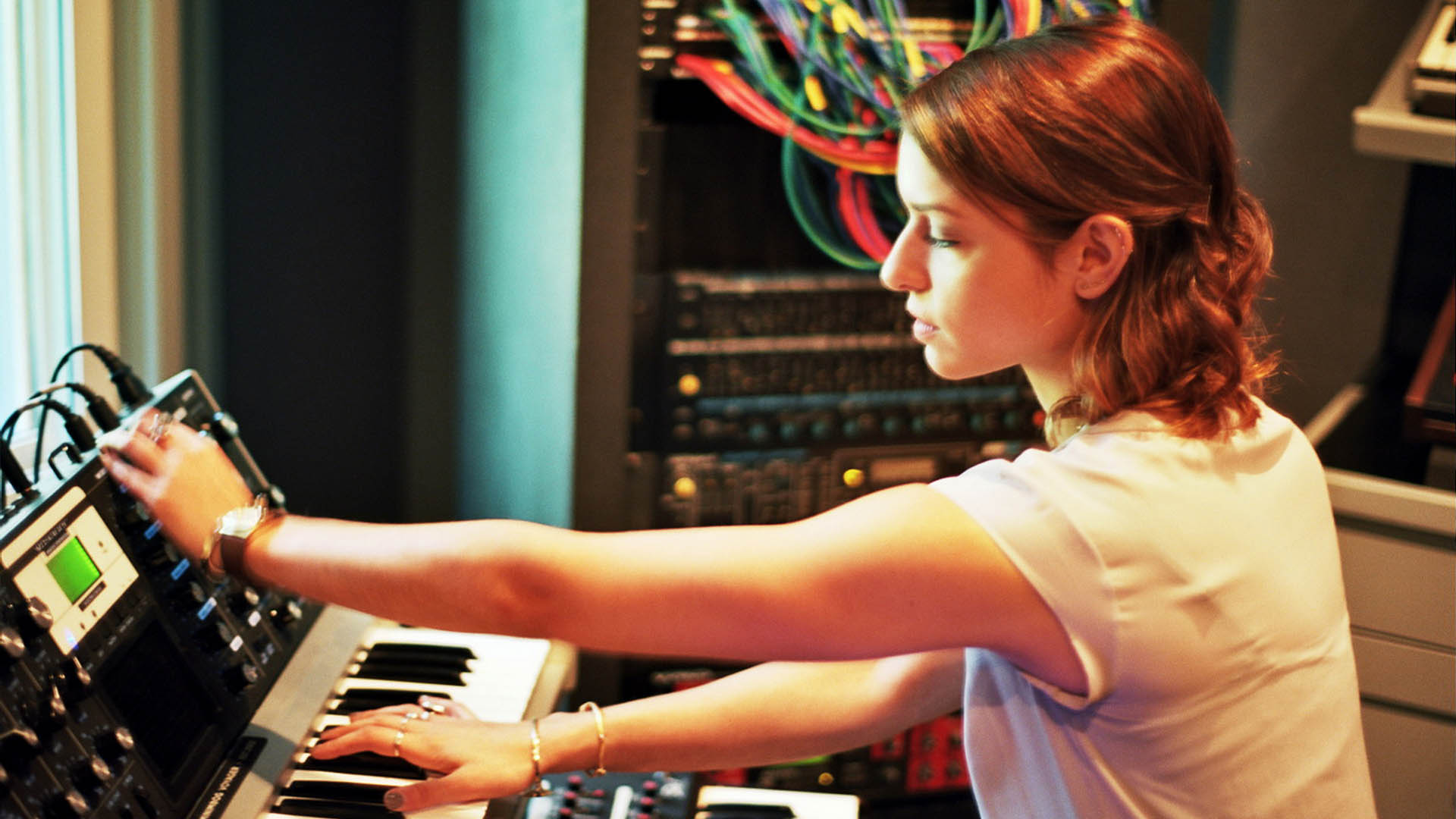
Stephanie Economou at work in her studio.
How long did you spend working on the soundtrack for this release and what is your process when it comes to composition?
I think I spent a total of three months on the score, and only a few days compiling the soundtrack. I usually like to start out every score by finding a melody that I think is fitting for the story and has the capacity to evolve and be used through different lenses. Then, I experiment with various synths, riffs, instruments, and collaborate with soloists to harness a unique sound world for the score. From there, it’s a lot of personal failure and self-doubt, but that’s a crucial and terrible part of the process! There are a lot of ideas and moving parts as I’m composing, and it doesn’t start to really settle into a place I’m happy with until I internalize those struggles and come out on the other side.
How difficult is it to make new music fit the existing feel of a game while still evolving it further?
I tried to entrench myself mentally into the sound of Valhalla and then I allowed my creative instincts to shape the music for this story in particular. I never tried to sound like Sarah or Jesper or Einar, but I did allow their influence to open up more experimental possibilities in my compositional approach. That gave me some unique freedom that I felt I hadn’t allowed myself before. But at the end of the day, I hope there’s a different voice that comes through in the music.
How do you compose music for a video game? Are you presented with a firm scene or more of a feel for the narrative beats you’re setting to sound?
When I started The Siege of Paris score, I had some concept art to look at which was really inspiring and helped me get rooted in the world. Not too long after that, I was provided with game captures which were really helpful for understanding the pace of the story and the immersive environment. These captures ranged from one minute to nine minutes, and depending on what was needed, sometimes the music had to be longer or shorter or required multiple, looped layers designed on top. There were also cut scenes, which were scored traditionally and cinematically to picture. It was a different process for me, but I learned so much.
What did you discover when you were doing research for the Siege of Paris soundtrack about this time period that inspired you?
I loved discovering and researching all kinds of ancient, primal sounds. The historical event of the Siege of Paris took place in the year 885, so I set out to discover what the music of France sounded like during that time. As it turns out, there is not much surviving record of musical repertory other than sacred music, but I found that when you’re hearkening back to time periods before the Renaissance, a lot of the instruments being played were essentially a wooden box with strings that were either hit or bowed, so it left a huge realm of possibilities to experiment within. Things could sound rugged, but you could still play a melody or flourish and have it feel very much part of the world-building.
If you had the opportunity to compose music for any period in history, when would you choose and why?
I’m torn between the impressionist era (a la Debussy and Ravel) and 1980s synth-pop. Perhaps one day I can somehow try both at once!
How important is a sense of authenticity when you are producing work that has a setting that blends historical events and fantasy/sci-fi elements?
I think it’s a delicate balance. I wanted to use authentic instruments to help shape the color and sound of the music by transporting us to this time in history. As with any historical or genre score, I tried to have respect for the music that came from this period, but I also allowed myself to explore other techniques on these instruments that veered outside of what would be considered traditional. I am a contemporary composer, so I was approaching this historical palette through a modern lens, and that’s where I think there’s a bit of a departure from a true sense of “authenticity.” What I love about working with Ubisoft is they encourage that kind of innovative perspective. They want the music to sound regional, yet still edgy and modern. They aren’t purists about that stuff, and that allows for a fun space to exist in as a composer.
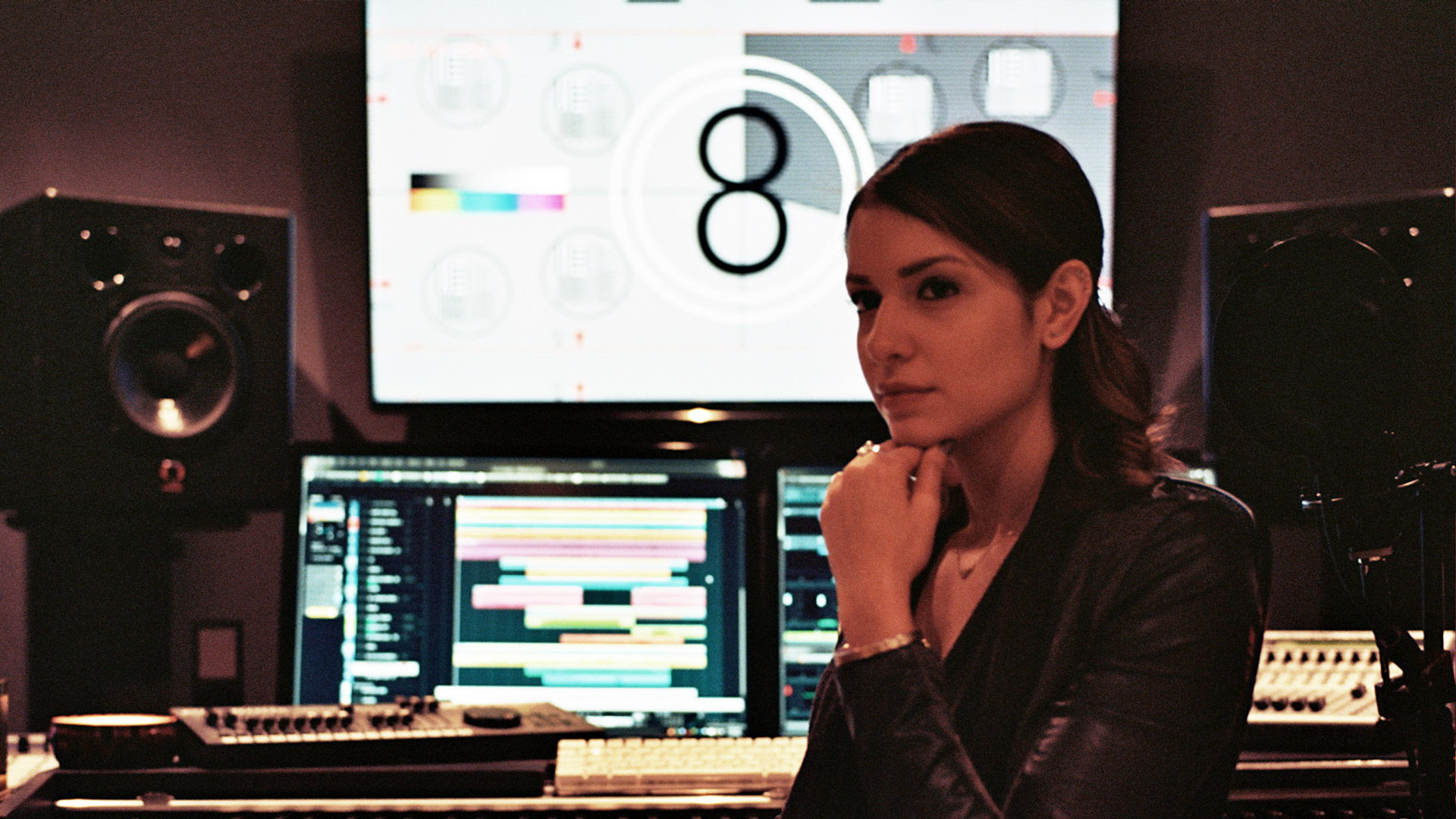
Stephanie Economou contemplating her approach to AC: Valhalla’s ‘Siege of Paris’ soundtrack.
In terms of the fantastical, what myth or folktale would you say most captures your imagination?
I grew up learning about Greek Mythology (especially because I’m of Greek heritage). I always adored the stories of Persephone, Icarus, and particularly Prometheus and the Theft of Fire. They’re so colorful and enchanting and intense. I love the wild imagination and imagery in those narratives.
Outside of your compositional work, what music do you like to listen to?
I have a somewhat varied taste in music. When I’m driving or relaxing, I’ll often toss on Pink Floyd, Crosby, Stills & Nash, Yes, Fleetwood Mac, The Who, Tom Petty, The Smiths, Jeff Buckley, System of a Down, Fleet Foxes, or Linkin Park. My taste is a little all over the place, but I will never get bored of listening to the music I grew up with.
When you’re not composing soundtracks for them, do you play many games and if so, what have you been enjoying recently?
I used to play a lot of games when I was younger. My favorites were Halo and Max Payne. I’m a little bashful to admit I don’t really play any big AAA games nowadays. I will, however, enjoy a rousing game of Mario Party with my husband every once in a while. You just can’t beat that kind of classic, unbridled joy. I also love this indie game studio called Rusty Lake. They create these incredibly imaginative, surrealist games which are my favorite contributions to the “escape room” genre. I could play their games forever.
What other kinds of media and activities do you enjoy in your downtime?
My main hobby is cooking and it has been for most of my life. I recently acquired a ceramic smoker, so I’ve been making all sorts of fun stuff, from smoked oysters to brisket to duck. There’s something immensely gratifying about cooking purely with fire and wood. That sounds enormously pretentious, but it’s true!
Receive a weekly summary from Kurgan Compass every Saturday.
Your career has gone from strength to strength, with several movie and TV soundtracks already under your belt. How much of the success you’ve had would you say has been down to hard work and how much of it has been luck?
Ah, the old “luck vs. hard work” conundrum. I do feel that there’s a small element of luck in everything we do in life. I got my start in this industry by working with Harry Gregson-Williams for several years. I met him on a whim when he came to give a lecture at UCLA where I was pursuing my Master’s degree. At that time, he had just moved back to Los Angeles from the UK and was rebuilding his music team again after taking a sabbatical. We had a brief chat and got along well, so he gave me a shot at a job. If I had met him just a few weeks earlier or later, it may not have unfolded that same way. I think occurrences like these end up being all about timing, which is usually out of our control. But once the door is cracked open for you, it’s fully yours to make or break. I have always prided myself on my work ethic, which can be somewhat all-consuming admittedly. I think those morals were instilled in me from a young age, as my parents are incredibly hard-working and I am continually inspired by their diligence to their careers and family. It’s because of this that I feel I have set high standards for myself in my work, and I try as best I can to exceed these self-set expectations with each project I complete.
What is your favorite soundtrack and which soundtrack, for the game, screen or stage, do you wish you had written?
My favorite score is Bernard Herrmann’s Vertigo. I had such a visceral experience watching that film and listening to the soundtrack for the first time. I also never tire of Alan Silvestri’s score for Forrest Gump or Thomas Newman’s music for The Shawshank Redemption. I don’t wish I had written any of these scores though. Trust me: I would much rather listen to other composers’ music than my own!
And lastly, what advice would you give to budding composers who want to work in the industry?
Make music that feels genuine to you. Don’t conform your compositional style to fit in whatever box you think works best for the sound of film or TV or game music. The thing this industry needs most is innovative, fresh, and diverse voices. Be weird, explore, experiment, and carve your own path.
Kurgan Compass™ appreciates that Stephanie Economou took time out of her busy schedule to answer our questions in a deep and meaningful way, and wishes her all the best.





